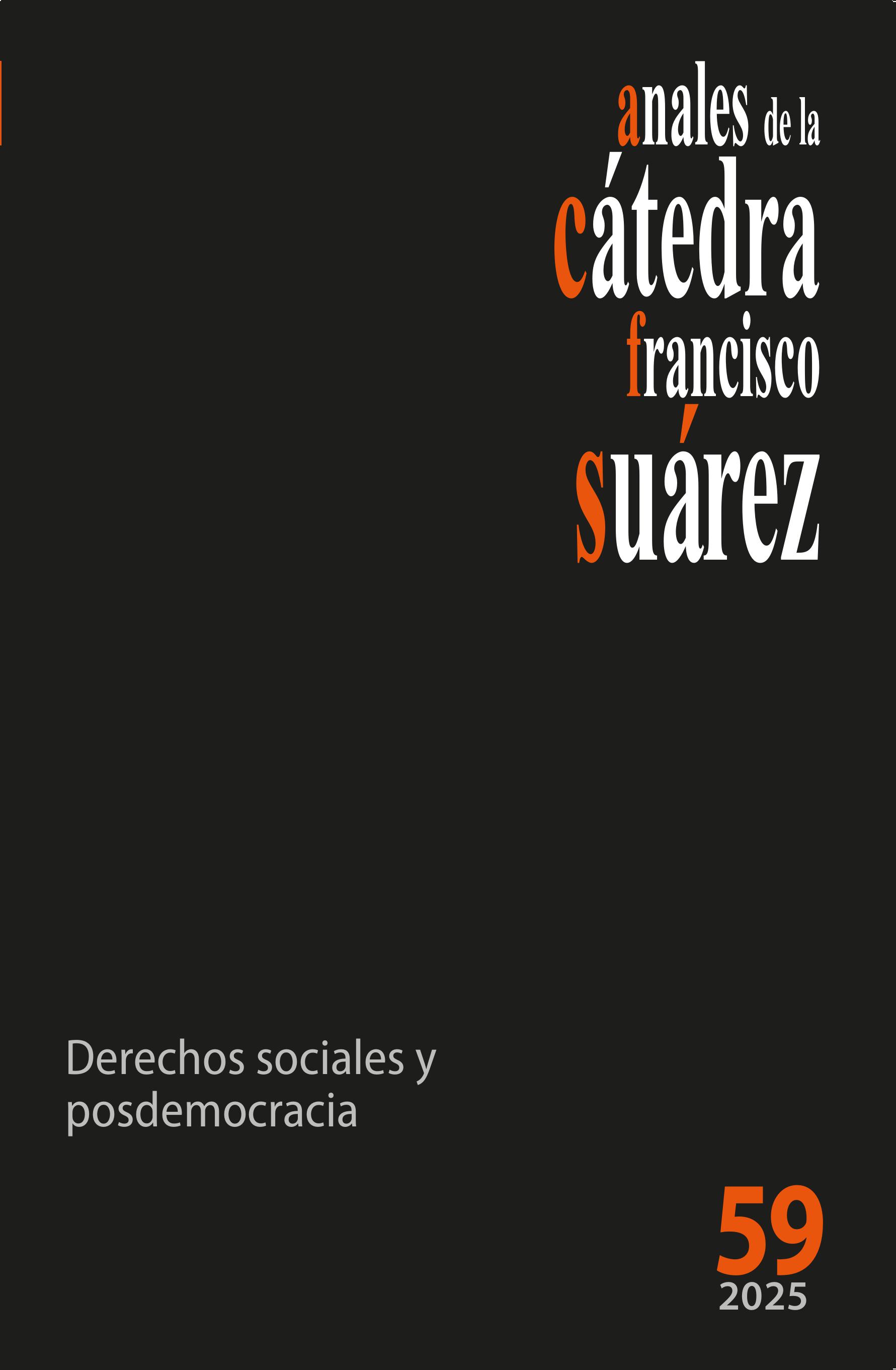Laclau versus Agamben: a dialogue between the postfoundational and the impolitical
Un diálogo entre lo posfundacional y lo impolítico
DOI:
https://doi.org/10.30827/acfs.v59i.29797Keywords:
Laclau, Agamben, Postfoundational, Impolitical, BenjaminAbstract
Postfoundational political thought and impolitical thought constitute two of the most relevant horizons of contemporary political philosophy. However, the literature does not always account for the differences between both approaches: the numerous assumptions they share have led to the implications that distinguish each of them being frequently confused. To delimit the concepts of the impolitical and the postfoundational, this article will propose the benjaminian distinction between the mythical and the divine as a hermeneutic key. Likewise, a dialogue will be established between two thinkers who will illustrate the difference between the postfoundational —Ernesto Laclau— and the impolitical —Giorgio Agamben—, while demonstrating the relevance of thinking about this difference based on Benjamin's categories.
Downloads
References
Agamben, G. (1996). La comunidad que viene. Pre-textos.
Agamben, G. (1998). Homo Sacer. El poder soberano y la nuda vida. Pre-textos.
Agamben, G. (2013). Altísima pobreza. Reglas monásticas y forma de vida. Homo Sacer, IV, 2. Adriana Hidalgo editora.
Agamben, G. (2018a). La potencia del pensamiento. Ensayos y conferencias. Adriana Hidalgo editora.
Agamben, G. (2018b). El uso de los cuerpos. Homo sacer, IV, 2. Adriana Hidalgo editora.
Agamben, G. (2021). Medios sin fin. Notas sobre la política. Adriana Hidalgo editora.
Benjamin, W. (2021). Tesis sobre el concepto de historia y otros ensayos sobre historia y política. Alianza Editorial.
Cacciari, M. (1994). Lo impolítico nietzscheano. En Desde Nietzsche: tiempo, arte, política (pp. 61-79). Biblos.
Cuervo Sola, M. (2014). Apuntes sobre el pensamiento político posfundacional. Una introducción a las bases teóricas de la distinción conceptual entre lo político y la política. Otros logos, 5, 56-72.
Esposito, R. (2003). Communitas: origen y destino de la comunidad. Amorrortu.
Esposito, R. (2005). Inmunitas: protección y negación de la vida. Amorrortu.
Esposito, R. (2006). Categorías de lo impolítico. Katz.
Esposito, R. (2009). Comunidad, inmunidad, biopolítica. Herder.
Esposito, R. (2012). La perspectiva de lo impolítico. Nombres, 15, 47-58.
Foucault, M. (2019). Historia de la sexualidad I: la voluntad de saber. Siglo XXI.
Galindo Hervás, A. (2015). Pensamiento impolítico contemporáneo. Sequitur.
García López, D.J. (2023). Ínsulas extrañas. Una ontología jurídica de la vida a través de la Italian Theory (Agamben, Esposito, Rodotà, Resta). Tirant lo Blanch.
Hegel, G.W.F. (1999). Lecciones sobre la filosofía de la historia universal. Alianza editorial.
Laclau, E. (2005). La razón populista. Fondo de Cultura Económica.
Laclau, E. (2007). Bare Life or Social Indeterminacy. En Giorgio Agamben. Sovereignty and Life (pp. 11-22). Stanford University Press.
Laclau, E. y Mouffe, C. (2015). Hegemonía y estrategia socialista. Hacia una radicalización de la democracia. Siglo XXI.
Marchart, O. (2009). El pensamiento político posfundacional: la diferencia política en Nancy, Lefort, Badiou y Laclau. Fondo de Cultura Económica.
Schmitt, C. (2009). Teología política. Trotta.
Thomassen, L. (2010). Deconstruction as a method in political theory. Österreichische Zeitschrift für Politikwissenschaft, 39(1), 41–53.
Downloads
Published
How to Cite
Issue
Section
License
Copyright (c) 2025 Anales de la Cátedra Francisco Suárez

This work is licensed under a Creative Commons Attribution-NonCommercial 4.0 International License.
Authors are the owners of the rights to their works. ACFS requests that publication notice on ACFS is disclosed if they appear later in another place.

















